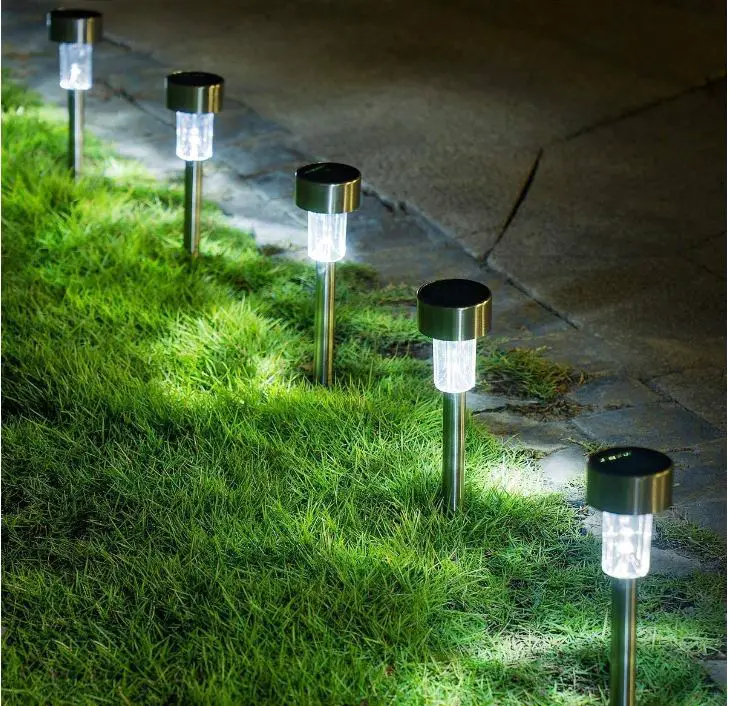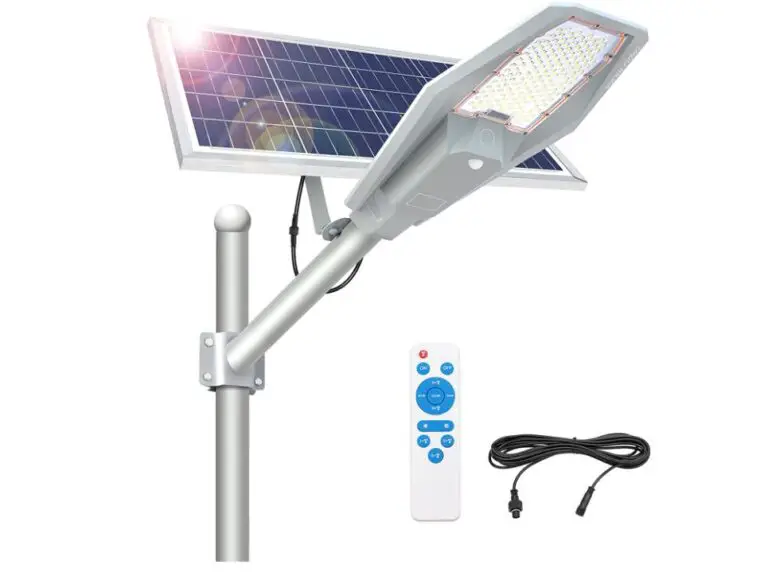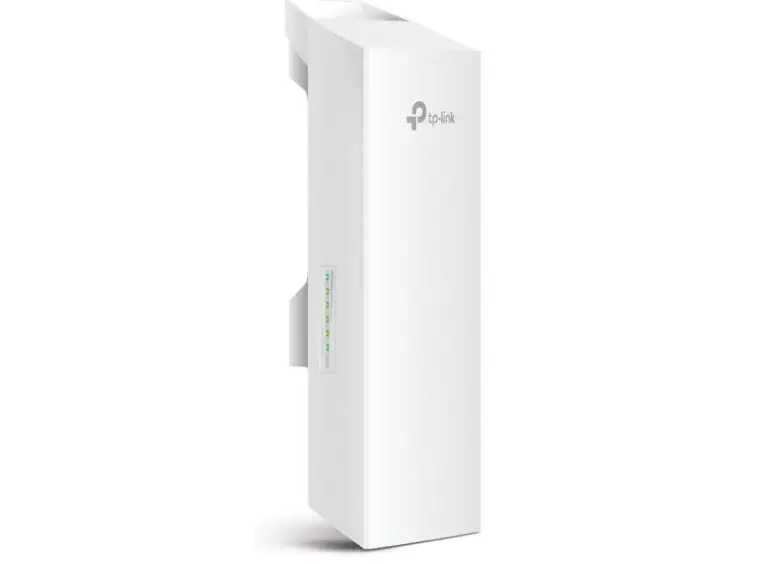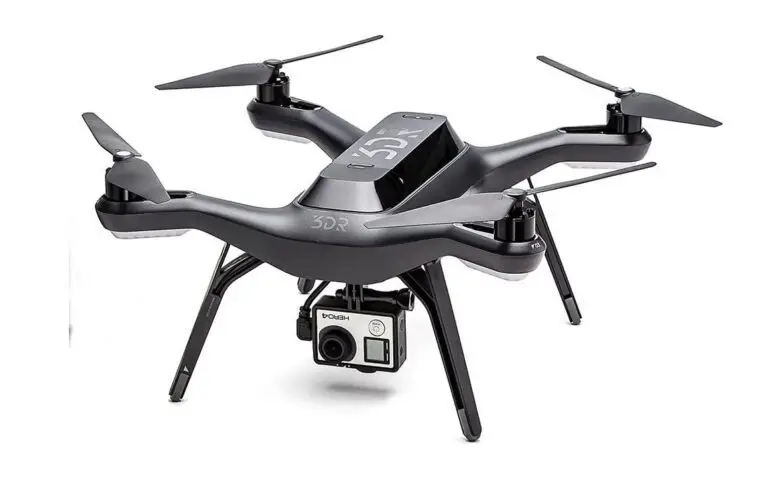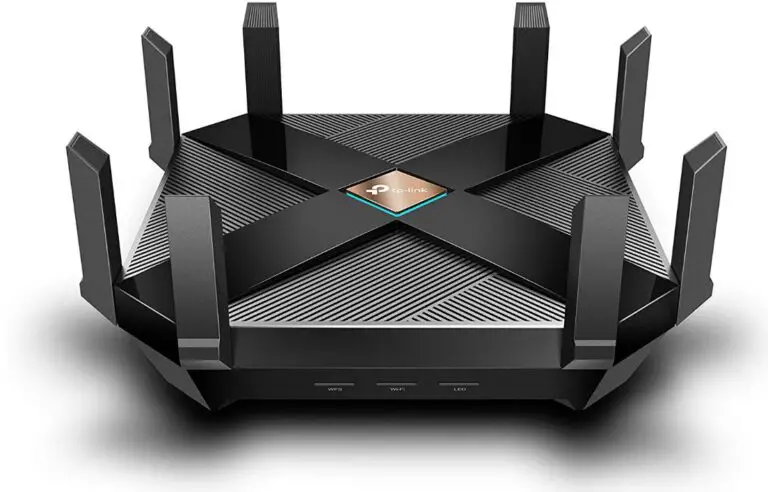Best Driveway Alarm and Sensor Reviews
Introduction
Even if you live in a low-crime region, having an extra layer of security between your kitchen and the outside world provides a sense of security that locked doors alone cannot always deliver. When automobiles, people, or even squirrels violate your property boundary, the best driveway alarm detects it. Not only can they keep you updated about your family’s whereabouts, but an alarm can also notify you of an unwelcome visitor. The following are some of the most popular choices on the market.
Types of Driveway Alarms
While the concept of a driveway alarm is straightforward, today’s selections can be confusing. There are three common types of driveway alarms among the items available. They may all improve your home security and give extra safety to your family, and each has its own set of advantages.
Passive Infrared (PIR)
Infrared beams detect nearby activity using heat in passive infrared (PIR) driveway alarms. Passive infrared alarms, often known as PIR alarms, are the most common type on the market. These alarms will detect not only car engines but also animals and people since they identify items that emit warmer temperatures.
This alarm sends a signal to the receiver when it detects a change in heat patterns, alerting you to the change. The sensitivity of higher-end devices may be adjusted, so your front-yard squirrels aren’t continuously setting off the system. PIR alarms are usually inexpensive and simple to install because they come in a single unit that can be mounted outside.
Active Infrared (AIR)
Active infrared alarms (AIR alarms), unlike PIR alarms, have two parts: the transmitter and the receiver. The transmitter sends out an infrared beam, which the receiver detects. The receiver is informed of the interruption and an alarm is sent out when an object crosses the course of the beam.
To detect movement, people who have these alarms usually install one portion on either side of their driveway. The disadvantage of AIR alarms is that they monitor a very narrow and particular area. It would be simple to walk around the driveway without being noticed. Still, it may be preferable to have no security system at all, and it could serve as an excellent starting point for a more comprehensive home security system.
Magnetic Probe
The magnetic probe is the third most frequent type of driveway alarm. This model is made of an encased PVC pipe with a hidden metal detector inside. The pipe is partially buried next to your driveway and is activated anytime a vehicle passes across its path. After that, the alert is sent to an indoor receiver.
There are fewer false alarms because the detector only detects metal. Both PIR and AIR alarms have the potential to mistake rustling leaves or a nice neighbor for an invader. Magnetic probe alarms are reliable in letting you know if there’s a vehicle in your driveway, even if they can’t detect everything.
Best Driveway Alarm of 2023


Mighty Mule Wireless Driveway Alarm (FM231)


eMacros Wireless Driveway Alarm


Guardline Wireless Driveway Alarm


1byone Wireless Driveway Alarm


Hosmart Wireless Driveway Alarm


eMACROS Pairable Wireless Driveway Alarm


HTZSafe Wireless Driveway Alarm


Wuloo Wireless Driveway Alarm


The Mighty Mule Wireless Driveway Alarm is our favorite electromagnetic probe kind, and it’s one of the few on our list that we think is worth mentioning.
Despite the fact that it only comes with a one-year guarantee, you’ll have access to technical support whenever you need it. The Mighty Mule Wireless Driveway Alarm is an excellent alternative if you’re seeking for a low-cost option with high-tech features.
You’ll want to try the electromagnetic type rather than the infrared one, especially if your neighborhood is more squirrel-infested than ever. The Mighty Mule Wireless Driveway Alarm is for you if you want your gadget to detect vehicles but not people.
When it comes to features, the buried cable connecting the sensor and the transmitter is just 10 feet long, which may be a drawback if you have a larger location. It does, however, have a detection range of 12 feet and a transmission range of 400 feet, making it ideal for a smaller home.
What are some more useful tidbits? The transmitter requires two AA batteries, while the receiver requires an AC adaptor.


eMacros is a well-known brand of driveway systems, and its products are ideal for individuals looking for long-lasting equipment.
The eMacros driveway alarm is ranked first on this list because it is one of the best long-term solutions available. When it comes to performance, you get a wireless range of 1/2 mile, which is sufficient for most people. However, this alarm system only comes with four sensors, which is a bit low for the price. After you’ve installed the alarm system, you may choose from four different amusing chimes.
Thankfully, each sensor of this driveway alarm provides a respectable coverage area of up to 30 feet. These sensors are completely powered by solar energy, making them suitable for outdoor use, especially when combined with water-resistant construction.
It has a solid build quality thanks to its industrial-grade PVC casing, which is also weather-resistant. This driveway alarm is not only water-resistant, but it also comes with a lifetime warranty, making it ideal for long-term use.


Because of the various sensors included, Guardline and its driveway alarms can be a wonderful alternative for anyone looking for a unit designed for large-scale use.
Our Guardline driveway alarm is ranked third in this article since it comes with the most sensors. To be more specific, the alarm unit comes with a total of 16 sensors. With it, you also get a great wireless range of 1/4 miles, which is to be expected for the price.
Despite the fact that this driveway alarm comes with a total of 16 sensors, it nevertheless provides good coverage with a range of up to 40 feet. Another advantage of its sensors is that they are all made of water-resistant materials. It also comes with a 2-year warranty, as you’d expect from such a high-end product.


1 By One is another well-known brand of driveway alarm systems that are known for providing some of the most cost-effective solutions available, making it a good choice for many.
For those of you on a tight budget, the 1 By One driveway alarm may be the best option. Despite being the cheapest choice listed here, it has a reasonable range of 1/5 miles. It comes with a total of 5 sensors, which is more than even more expensive options. One of the best advantages of this low-cost driveway alarm is that it has a total of three alert sounds and 36 chimes to select from, giving it a lot of flexibility and personalization.
You may also adjust the level of the alarm chimes between 25 and 80 decibels to make sure it’s loud enough. All of these sensors include waterproof sealing for long-term use, ensuring that they can be utilized outside. However, their coverage is limited to about 24 feet, which may be insufficient for some users. Unlike most other affordable alternatives, this 1 By One driveway alarm also comes with a 2-year guarantee.


H Hosmart, as its name suggests, makes a variety of items for use around the house, including its driveway alarm unit.
If you don’t want to spend a lot of money, H Hosmart’s driveway alarm is another potential choice. Starting with its wireless range, it is rated at up to 1/2 miles, which is comparable to most other options. This is combined with a total of four sensors included within its box. This H Hosmart driveway alarm, like many others, has four chimes to pick from for its alarm unit.
You may acquire a coverage area of up to 30 feet from each sensor by adjusting the sensitivity settings. You can put these sensors anyplace you like because they are water-resistant and sealed. This alarm can easily survive more than 30 years because it includes a built-in solar panel. The build quality of this driveway alarm is subpar, despite the fact that it comes with a 2-year warranty.


In this list, we have another eMacro driveway alarm system that is also a highly reliable alternative designed for long-term use while providing decent performance numbers.
The eMacros driveway alarm is ranked sixth on this list because it is the most durable and reliable choice available without spending a premium. This eMacros driveway alarm, like the previous one, has a wireless range of up to 1/2 miles.
Unfortunately, because it is a lower-cost alternative, it only comes with one sensor. When it comes to the alarm device, there are seven different alarm chimes to pick from that play when the sensors detect something.
Fortunately, the sensor that comes with it has a coverage range of up to 30 feet, which is fairly good when compared to other options. It can easily endure more than 30 years thanks to its solar power source. You’ll be pleased to learn that this driveway alarm is weather-resistant, thanks to its PVC construction. eMacro also includes a lifetime warranty, making it an even better alternative for long-term use.


While you may not have heard of HTZSafe before, most of its products, such as the driveway alarm mentioned above, can be a wonderful budget alternative despite having a variety of useful features.
If you’re looking for a low-cost alarm system, HTZSafe’s driveway alarm is one of the best solutions available. For most users, the wireless range of 1/4 miles is enough for the price. This is extremely impressive, especially when used in conjunction with the four sensors that will be set around your driveway. You’ll be pleased to learn that you can either utilize the solar panel incorporated into the device or charge it outside via USB.
These solar-powered sensors have a coverage range of up to 50 feet, which is far greater than most others, making them perfect for larger regions. Its alarm unit has a total of 35 chimes that can be played at four different loudness levels. This driveway alarm set comes with a 2-year warranty for your peace of mind, in addition to having a water-resistant design and excellent constructed quality.


Finally, on this list of driveway alarms, we have a Wuloo choice that you should definitely consider if you’re seeking quite powerful possibilities.
The performance of this Wuloo driveway alarm is quite good when compared to most other driveway alarms in its class. To begin with, its wireless range is estimated at a respectable 1/3 mile. The best part about this driveway alarm system is that it has a total of eight sensors to cover your entire driveway. This alarm system is unique in that it may be used as a clock in addition to having customizable chimes and volumes.
And, as you’d expect given the high price tag, these sensors have a coverage range of up to 30 feet, which is always a plus. The integrated battery could last up to 24 months on a single charge thanks to the solar panel. This one, like most other driveway alarms, is made of waterproof materials and comes with a decent 1-year warranty.
What to Consider When Choosing the Best Driveway Alarm
Now that you’ve learned about the different sorts of alarms, it’s time to look at the many features and capabilities that alarm systems have to offer. There are several variables to consider when selecting a driveway alarm system, ranging from waterproof designs that will withstand a storm to solar-powered devices that never require replacing batteries.
Power Source
An alarm must be powered in order for the sensor to work effectively. Batteries, solar energy, and your home’s electricity can all be used to power today’s models.
- Battery-operated alarms have the shortest lifespan and require frequent battery replacement. Experts recommend utilizing rechargeable batteries to avoid having to buy new ones.
- Solar-powered alarms are convenient because they can be set up and forgotten about. During cloudy conditions, however, they can sometimes cause false alarms.
- An outlet is used to power electricity-powered alarms. They require a long power line or installation closer to your home, which limits their versatility.
Range of Transmission
The transmission range of a driveway alarm refers to the furthest the sensor may be placed from the receiver while still receiving a signal. Because most people use the receiving device within their homes, it’s important to pick a gadget that works well indoors.
Determine the location where you’ll mount and install the sensors before you go shopping so you can figure out how much distance you’ll need. The majority of sensors have a range of 500 to 1,000 feet. A range of 50 feet or less is considered extremely short.
Weatherproofing
It’s a good idea to keep an eye out for driveway alarms that may work in any conditions. These devices defend against moisture and are less prone to issue false alarms when the weather changes. This has been reported to happen with some solar-powered alarms.
Angled sensors are another weatherproofing feature to consider since they assist reduce false alerts in more severe weather. If you’re worried about the weather, seek products that are branded “waterproof” or “water-resistant.” The magnetic probe alarms will be the most waterproof because they are buried beneath. If you reside in a location where rainstorms or snowstorms are common, having something that can withstand the strongest winds is essential.
Motion Detection and Sensors
Because the types of motion detection and sensors used in driveway alarms differ, not all of them detect the same things. PIR devices detect objects based on heat patterns, while AIR models are activated when someone walks through the infrared beam. Others, such as magnetic probes, are solely capable of detecting metal. It’s crucial to think about what types of things you want to be detected before you go shopping, whether it’s people, animals, or cars.
Check to see if the driveway alarm system you’re thinking about has sensors that can correctly assess your driveway. You may want an AIR model that spans the width of the driveway or a PIR type that is installed in a single location. Some goods can be tailored to fit any home and offer an expandability option.
False Alarm Prevention
The most common concern about driveway security systems is that they might cause false alerts. Solar-powered devices, as previously indicated, can be triggered by changing weather conditions, whereas heat-sensing PIR sensors can be triggered by passing children or animals.
Because of this concern, several manufacturers are including sensitivity options in their alarms, which allow you to alter the sensor range to limit the frequency of false alarms in a given area. Changing these parameters is frequently as simple as turning a dial on the gadget.
Driveway alarms are more effective than ever before because of updated technology, and it’s a terrific feature if you have a lot of high-traffic areas surrounding your house.
Smart Technology
Some newer models include smart capabilities such as voice control, security cameras, and notifications that may be received via a downloaded app on your phone. Only a few high-end items work with popular smart-home assistants.
Sensitivity control, weatherproofing, simple installation, various alarm sounds, and a variety of tones, and styles that can be easily buried out of sight are among the other advantages. Alarm systems with lengthy battery life and the flexibility to add additional sensors for increased security are also available. Additional features, like any other product, might raise the price of the alarm system.
Ease of Installation
Almost every type of driveway alarm system necessitates self-installation. Some are easier to install than others, so check the installation requirements before you buy to be sure you have the right tools.
Infrared alarms are relatively simple to set up as long as the distance between the sensors is within the recommended range and the two sections are properly aligned, according to the manufacturer’s instructions. Alarms from probe sensors, on the other hand, are a little more challenging. To avoid being activated by car traffic, bury the probe underground and make sure it’s at least 25 feet away from a road.
Frequently Asked Questions:
How does the driveway alarm work?
This driveway alarm will detect the presence of someone using motion sensors. The user is then notified to check out what is going on in their immediate surroundings. To detect and perceive motion, you must position the sensors in the driveway. While keeping the receiver in the house will allow you to hear the alarm easily if it is triggered by movements.
Both of these come in a variety of styles and capacities. Another two important criteria to consider are detection range (sensor coverage area) and transmission range (the maximum distance between the receiver and sensor to still get a signal to work).
Where to install this driveway alarm?
It is entirely dependent upon the driveway. However, you must place the alarm system far enough away from the road so that it is not activated by traffic. If your home is near a busy road, for example, you should place the sensor close to your property to avoid false warnings. For longer driveways, sensors should be installed midway between the house and the driveway’s start point.
When you live in the country, your driveway looks more like a road than a private lane. As a result, installing the sensor in the front driveway will result in multiple alarms. As a result, it is a waste of time to use these alarms. So, if you put this sensor approximately halfway down the driveway, you’ll get a notification and know when somebody comes home.
Which type of driveway alarm detects people?
Infrared alarms (both AIR and PIR) can identify persons in most cases, but magnetic probe alarms can only detect metals (or vehicles).
How to choose the transmission range?
You must select the transmission range’s performance based on the circumstances of the unobstructed and perfect situation. As a result, select an alarm with a minimum range of 100 feet greater than the needed range. If your home is surrounded by buildings, trees, or other similar impediments (or) if you have a larger property, choose a model with a range of at least 500 feet longer than the required range.
Do pets trigger these alarms installed in your driveway?
Yes, it can trigger a pet if you utilize infrared-type alarms (either AIR or PIR alarm). Some alarms have sensitivity settings to prevent the sensor from being triggered by dogs.
How to install a driveway alarm?
Choose a prominent location for the sensor installation near the driveway entry. You must mount your chosen model near the ground, depending on the model. Sensors are usually powered by a battery and must be strapped to a mailbox post or fence (or) screwed into a tree or post. After attaching the sensors, connect them to the transmitter in such a way that they pair up and communicate with one another. Finally, for each zone of the alarm system, set the required sound (tone).
Why does my alarm give false alerts?
Some driveway alarms may give false alarms depending on the type of alarm and its sensitivity settings. To reduce false alarms, just program the sensor to recognize specific objects and sounds.
Is it true that landscaping will affect the performance of these alarms?
It won’t impair the alarm’s performance if you place them properly based on garden and driveway landscaping ideas. As a result, we recommend that you verify whether natural landscaping movements impede sensor coverage or cause false alarms before permanently installing them.
How far will the driveway alarm work?
Some versions are made to travel a great distance, while others are made to travel a shorter distance. It all depends on the type of alarm system you have installed on your driveway. Remember that trees, buildings, and other objects may interfere with signal transmission. So, before you install the alarm, double-check all of these difficulties.
Conclusion:
Even if you have your cars and other vehicles parked in your garage, you will want to keep them secure at times. You may do the same thing by installing cameras and motion sensors to easily monitor them. As a result, we’ve already covered a number of the best driveway alarms in this article.
We’ve included these driveway alarms, together with their features, specifications, details, and a thorough buying guide, so you can pick the best one for your needs.


